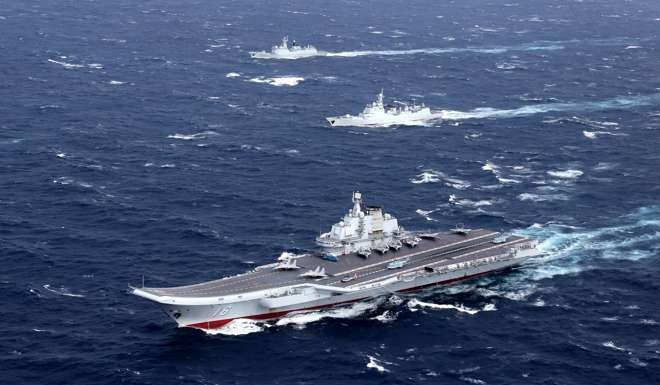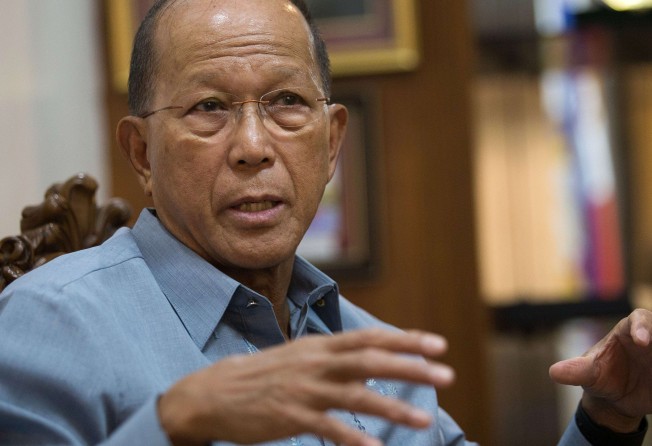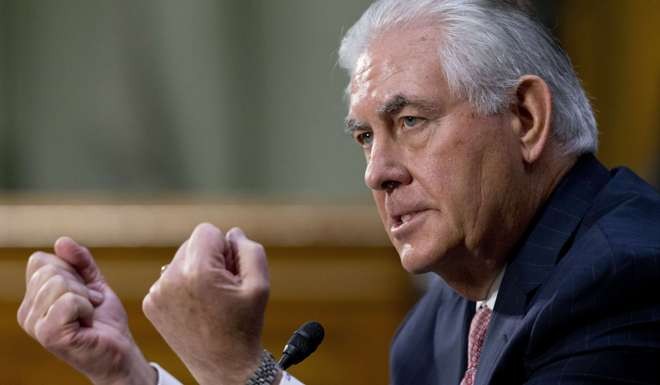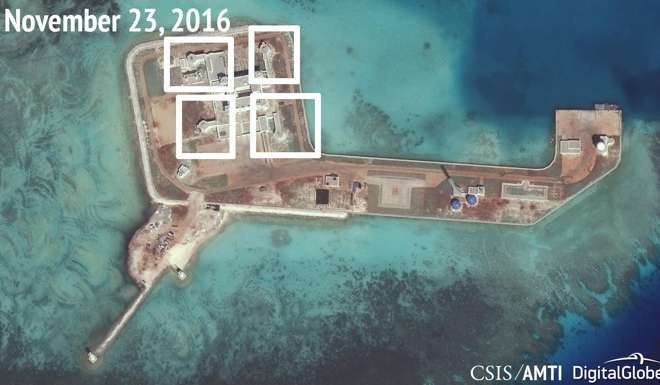
US-China war over South China Sea reefs will not happen, says Philippines’ defence secretary
Delfin Lorenzana says fears of war overblown after Beijing rebukes US Secretary of State for saying Washington will try to stop China accessing facilities on artificial reefs

Fears that US President Donald Trump will start a war with China over disputed territory in the South China Sea are overblown, according to Philippine Defence Secretary Delfin Lorenzana.
“I don’t think it will happen,” Lorenzana, 68, who spent more than a decade as the defence attaché and war veteran’s representative in Washington, said in an interview at his Camp Aguinaldo headquarters in Manila on Thursday.
“Trump is a businessman and he knows that if war breaks out, businesses will suffer.”
The newly confirmed US Secretary of State Rex Tillerson drew a sharp rebuke from Beijing in January when he said the US would seek to prevent China from accessing facilities it built on artificial reefs in the South China Sea.
Lorenzana questioned whether that was even possible, saying: “How can you prevent something that’s already there?”
The Philippines has shifted toward China and Russia under President Rodrigo Duterte, undermining a security alliance with the US that has endured since the second world war.

The Philippines and China are among six claimants to disputed territory in the South China Sea, a key trade route that also contains oil and gas reserves.
After years of pushing back aggressively against China’s claims – including a victory before an international tribunal last year – Duterte has adopted a softer approach towards Beijing, which has a much stronger military.
“I’m not going to wage war over those small islands,” Lorenzana said. “Even if we have the military might, we will also think twice before we engage in a shooting war,” he said.
Lorenzana will ask Congress for a defence spending increase of up to 2.5 per cent of gross domestic product from the current 1.5 per cent, which is about half what most of the Philippines’ neighbours currently spend.

While pledging to stay neutral if tensions between the US and China continued to escalate in the South China Sea, Lorenzana decried a recent incursion by a Chinese survey ship off the coast of Surigao in the southern Philippines earlier this year.
“What is a survey ship doing there, staying in one place for days?” the defence secretary said.
“That is not an innocent passage,” he said, recalling that he urged Foreign Secretary Perfecto Yasay to lodge a formal protest. Yasay did not reply to a request for comment on the incident.
Lorenzana said it was important for the Philippines to speak up against Chinese incursions in its waters after an international tribunal ruled last year that China’s claims to more than 80 per cent of the South China Sea had no legal basis. The case was brought by the Philippines.
“We are not abandoning our claim in the South China Sea,” Lorenzana said.
“We have two hard documents favouring us. They have nothing except their imagination.”
Still, there is a foundation for greater cooperation between the countries.

Like Duterte, Lorenzana supports joint mineral exploration with China in the disputed waters of the South China Sea, and he signalled that his plans to visit a Philippine outpost in the waters within the first half of this year should not be misinterpreted.
A likely visit by Duterte to Moscow in the next few months could also open the door to defence purchases from Russia, Lorenzana said.
Duterte’s shopping list includes attack helicopters and the possible acquisition of a Russian-made Kilo class submarine.
On Wednesday, the US Embassy in Manila announced that it had delivered new military equipment to the Philippines including 400 grenade launchers, 85 sniper rifles and a RQ-11B Raven unmanned aerial vehicle system consisting of three drones for exclusive use and ownership of the Philippine Armed Forces.